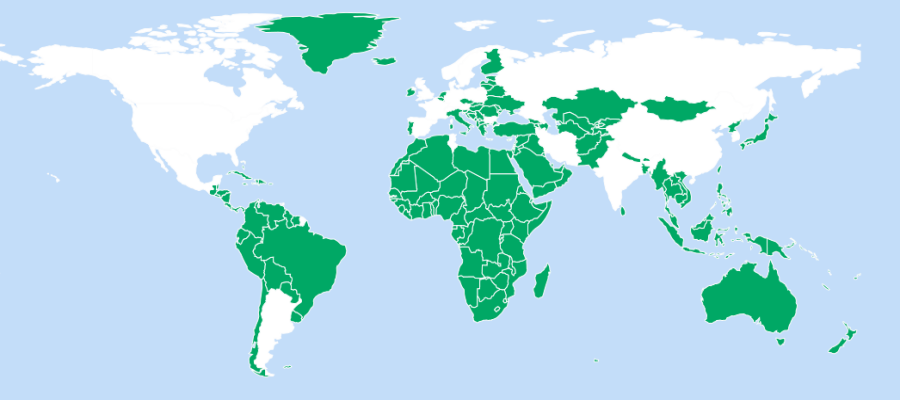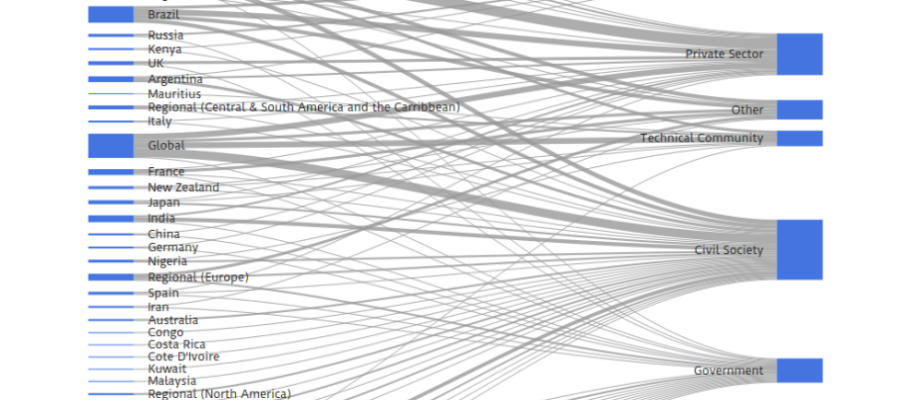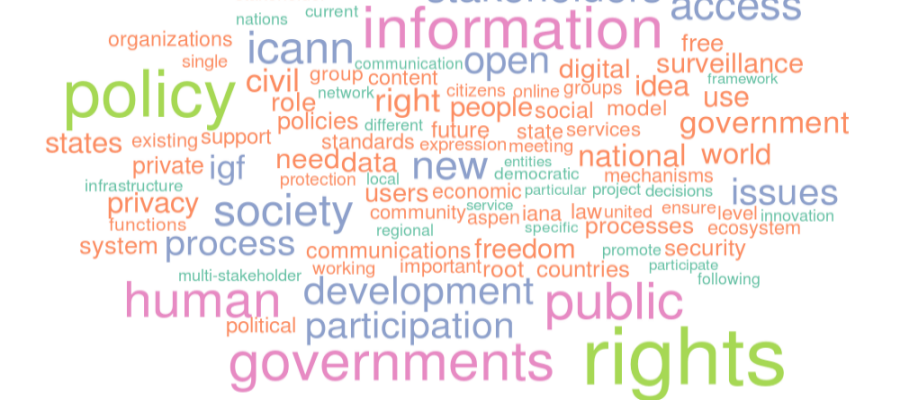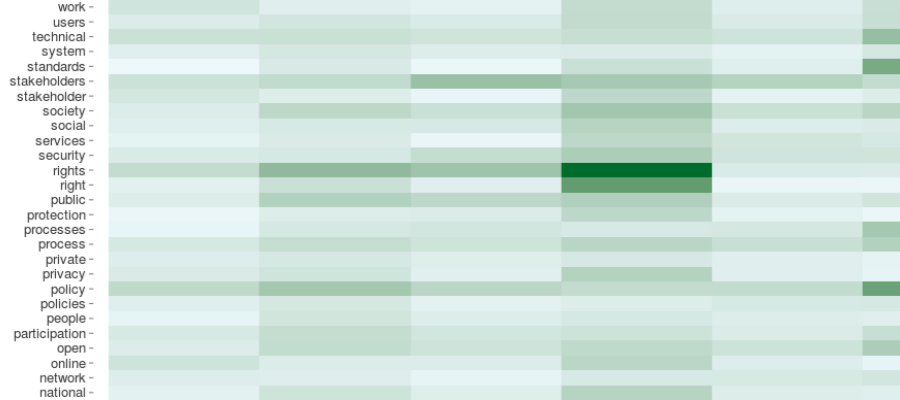
Which Governments Have Not Submitted Contributions to NETmundial?
This map shows all the countries from which the respective governments have not submitted any contribution to NETmundial...

Contributions by Types of Organisations
This Sankey diagram divides up the contributions between the various types of contributing organisations and the country they belong to...

Word Clouds by Types of Organisation
The word clouds show the hundred most frequently appearing words in the aggregated contribution text of each type of organisations...

Comparing Appearance of Fifty Most Frequent Words
These heatmaps compare the appearance of fifty most frequently appearing words across the contributions...
